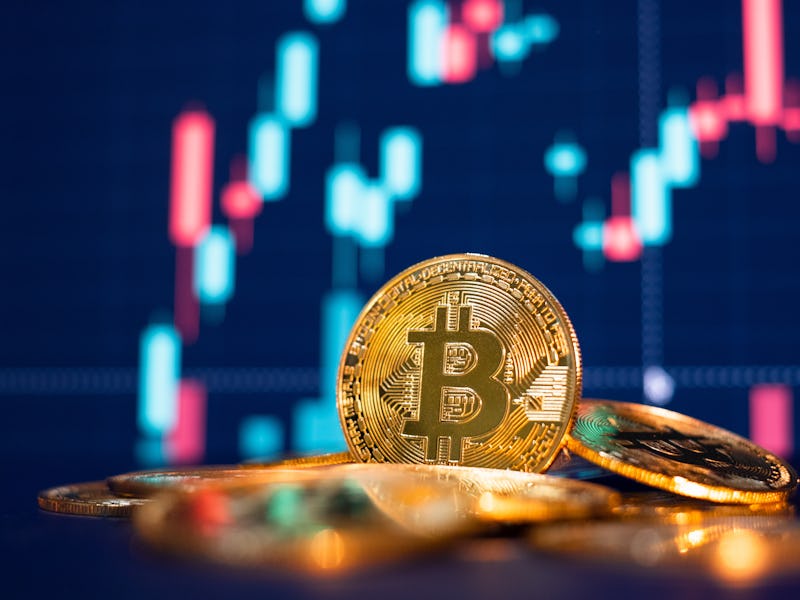Bitcoin: Tesla finally explains why it bought the cryptocurrency
Tesla purchased $1.5 billion in bitcoin earlier this year, a move that sparked widespread excitement in the cryptocurrency world.

Tesla has shed more light on why it made a large purchase of bitcoin.
During the company’s first-quarter 2021 earnings call Monday, chief financial officer Zach Kirkhorn responded to a question regarding the firm’s digital currency plans. In his reply, he explained why the company announced on February 8 that it had purchased $1.5 billion in bitcoin.
Want to know more about Musk’s plans for the future, the state of Tesla, and what’s going on with its advanced battery plans? Read the full transcript, only in Musk Reads+.
“Elon and I were looking for a place to store cash that wasn't being immediately used, try to get some level of return on this but also preserve liquidity,” Kirkhorn said.
The comments follow what seems to be CEO Elon Musk’s increasing interest in bitcoin. In February 2019, he described the cryptocurrency’s structure as “quite brilliant,” but added that “it’s quite energy-intensive” and he was “not sure it would be a good use of Tesla’s resources to get involved in crypto.”
That seemed to change this year. In January 2021, Musk added the word “bitcoin” to his Twitter bio. The following month, after Tesla announced its bitcoin holdings, Musk posted on Twitter that money is “just data that allows us to avoid the inconvenience of barter.”
“That data, like all data, is subject to latency & error,” he wrote. “The system will evolve to that which minimizes both.”
But Kirkhorn’s comments suggest that Tesla’s purchase of bitcoin was driven more by financial reasons than any sort of belief in the future of money. Kirkhorn, who was given the title “master of coin” in March 2021, explained that “being able to access our cash very quickly is super important to us right now.”
Bitcoin’s price has soared in recent months.
This is expected to be particularly important as Tesla works to expand over the coming year. The company aims to start production at two new factories later this year, one in Texas and one in Berlin. Tesla also plans to start production of its Semi truck, with large-scale Cybertruck production following next year.
Tesla, Kirkhorn says, is also concerned about global issues like port capacity and semiconductor shortages. On the latter front, it announced in its earnings report that it switched to new microcontrollers to avoid the worst effects of the ongoing shortage.
While Tesla’s primary motivation may be finding a place to put its cash, it’s also dipped a toe into full cryptocurrency support. On March 24, Musk announced via Twitter that customers can now purchase a car using bitcoin.
“There's a lot of reasons to be optimistic here,” Kirkhorn said. “We're certainly watching it very closely at Tesla, watching how the market develops, listening to what our customers are saying.”
The Inverse analysis — Tesla’s reasoning for its bitcoin purchase seems relatively straightforward — it wanted to invest somewhere with liquidity. It also seems to have paid off, as the price has increased 25 percent since the day Tesla announced its purchase.
But bitcoin’s energy usage, which Musk expressed concern about in 2019, remains an issue. The cryptocurrency incentivizes “miners” to process transactions by offering bitcoin as a reward. It requires miners to set their computers to solve complex problems. If their block is accepted on the blockchain, they receive bitcoin as a reward.
In a paper published in the journal Joule in March 2021, data scientist Alex de Vries argued bitcoin mining will likely exceed an annual energy consumption of 101 terawatt-hours.
But Musk has suggested bitcoin could have some positive effects on electricity. On April 22, in response to a tweet from Twitter CEO Jack Dorsey that read “bitcoin incentivizes renewable energy,” Musk wrote “true.”
Musk still owns bitcoin himself. In February 2018, he wrote that a friend sent him 0.25 bitcoins “many years ago.” This month, he confirmed that he has not sold any of his bitcoin.
But as the CEO makes increasing reference to the Dogecoin cryptocurrency, most recently in a Twitter post about his upcoming Saturday Night Live appearance, Musk may not feel tied to bitcoin as the be-all and end-all.
TO READ THE FULL TRANSCRIPT, SUBSCRIBE TO MUSK READS+.
Here is what you will gain from subscribing to MUSK READS+:
- Three emails per week, enabling fans to go deeper into the week’s news.
- Original interviews and reporting, longform analysis, previews and recaps of major events, including earnings calls and more.
- Community-focused extras like responses to reader mail, an upcoming event calendar, and notable anniversaries.
- An archive of previous subscriber-only content, so you can easily read back over what you might have missed.
- Promotional deals and offers.
- Supporting original, independent journalism.
MUSK READS+ is a fully independent operation. We are not Elon Musk, nor are we employed by him. Our job is to report the events we find newsworthy, giving you the inside look at the worlds of space rockets, electric cars, clean energy, and more. It means first-hand accounts of a SpaceX rocket launch, Tesla insights from third-party analysts, and more.
If you want to support us in our mission, and receive original interviews and analysis, consider contributing with a subscription.
This article was originally published on